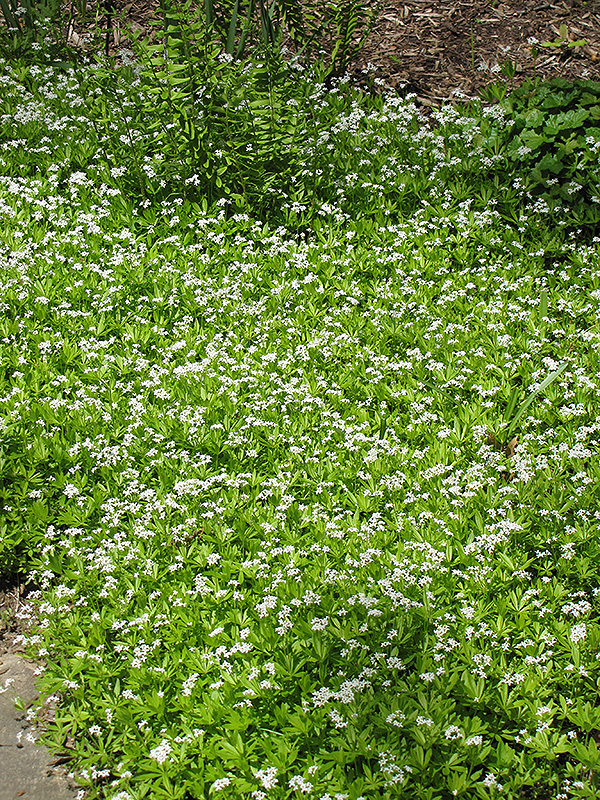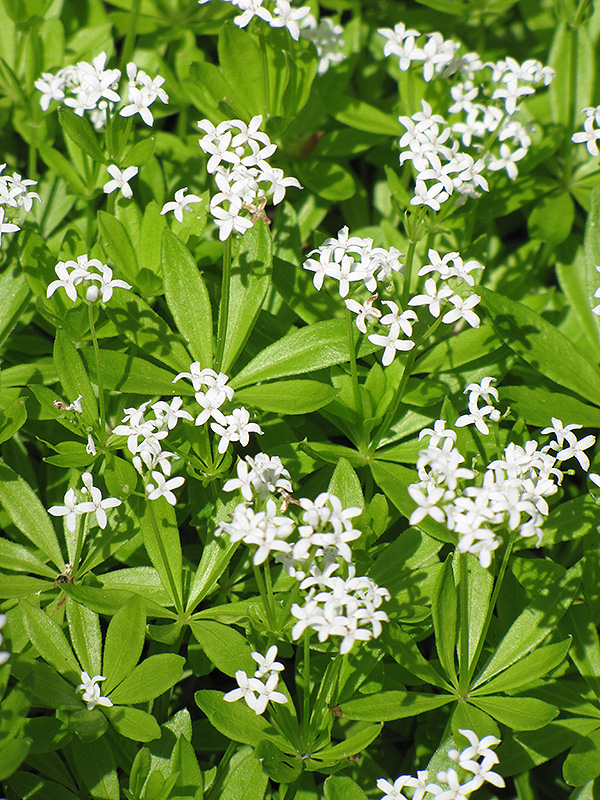Height: 8 inches
Spread: 24 inches
Sunlight:
![]()
![]()
Hardiness Zone: 2b
Other Names: Asperula
Description:
A vigorous and spreading groundcover for a woodland or shade setting; attractive whorled foliage and tiny white flowers in spring; prefers organic, slightly acidic soils; tough yet quite delicate-looking, putty in the hands of a talented garden designer
Ornamental Features
Sweet Woodruff features dainty lightly-scented white star-shaped flowers at the ends of the stems in mid spring. Its fragrant narrow leaves remain light green in color throughout the year.
Landscape Attributes
Sweet Woodruff is a dense herbaceous evergreen perennial with a ground-hugging habit of growth. It brings an extremely fine and delicate texture to the garden composition and should be used to full effect.
This plant will require occasional maintenance and upkeep, and is best cleaned up in early spring before it resumes active growth for the season. Deer don't particularly care for this plant and will usually leave it alone in favor of tastier treats. Gardeners should be aware of the following characteristic(s) that may warrant special consideration;
- Spreading
Sweet Woodruff is recommended for the following landscape applications;
- Groundcover
Planting & Growing
Sweet Woodruff will grow to be about 8 inches tall at maturity, with a spread of 24 inches. Its foliage tends to remain low and dense right to the ground. It grows at a fast rate, and under ideal conditions can be expected to live for approximately 10 years. As an evegreen perennial, this plant will typically keep its form and foliage year-round.
This plant does best in partial shade to shade. It prefers to grow in average to moist conditions, and shouldn't be allowed to dry out. It is not particular as to soil type, but has a definite preference for acidic soils. It is somewhat tolerant of urban pollution. This species is not originally from North America. It can be propagated by division.
A NetPS Plant Finder tool



